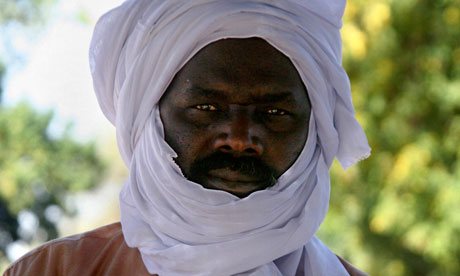What's going on outside of South Kordofan? Plenty. Yesterday, Sudanese anti-riot police broke up a demonstration protesting the construction of an up-country dam; Rebel leader George Athor, South Sudan's most high profile rebel leader, was killed by South Sudan's military near the border with the Democratic Republic of Congo and African Union mediators have announced Sudan and South Sudan will resume negotiations in January, aimed at resolving their dispute over ownership of oil reserves.
George Athor has led an independent rebel group, South Sudan's Democratic Movement/Army (SSDMA) against the new government in Juba, after splitting from the SPLA in 2010. An SSDMA spokesman refuted the version of events announced by a government spokesman, claiming instead that the Ugandan government had a hand in the killing.
 |
George Athor, South Sudan rebel leader
|
On Tuesday, a number of youth affiliated to the Al-Manasir tribal group in Northern Sudan thronged the main bus station in central Khartoum, in protest at what they claim has been the forced displacement of over 100,000 people without adaquete compensation, to facilitate the construction of a Chinese- built dam.
Community leaders claim that 90% of the promised compensation has not yet been received; the Merowe Dam was financed by China, the Arab Fund for Social & Economical Development, the Saudi Fund for Development and other Arab funds. The project has been marred by reports of human rights abuse since it's inception in 2003. Human Rights Organisation claim members of communities opposed to the dam's construction have been detained, tortured and even killed. Tuesday's protest was forcibly broken p by riot police with tear gas and a number of people were arrested.
In other news and perhaps significantly for South Kordofan, the Sudanese Armed Forces today reiterated their commitment to withdrawing from the disputed border region of Abyei. A force of over 4,000 Ethiopian troops is due to arrive in the region in the coming days as part of a new United Nations peacekeeping force, the UN Interim Security Force for Abyei (UNISFA).
Earlier this week, the government in Khartoum arrested a senior opposition politician, upon his return from a trip abroad. The Popular Congress Party's (PCP) political Secretary General, Kamal Omer,announced that the party's organisational communications officer Ibrahim al-Sanousi was arrested on Monday at Khartoum Airport by members of the National Intelligence and Security Services (NISS).
 |
| Ibrahim al-Sanousi |
The PCP is led by Islamist figure Hassan al-Turabi, who engineered the 1989 coup which delivered power to Omer Hassan al-Bashir. The two later fell out in the 90s and al-Turabi became a fierce critic of the Khartoum based government.
The Sudan tribune reports an opposition source as suggesting that the Sudanese authorities are concerned the PCP may be collaborating with the Kadua alliance, a newly formed rebel alliance aimed at toppling the government in Khartoum.







